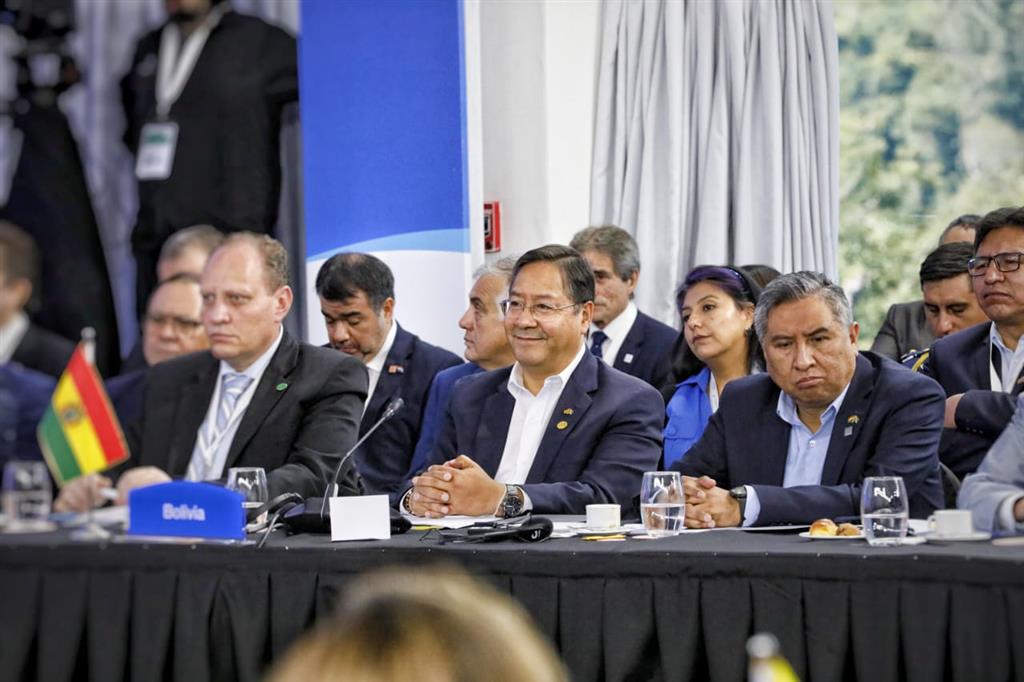“Bolivia, together with two other countries of the expanded Mercosur, have the largest lithium reserves in the world, and together with the Amazon countries we have large deposits of rare earths,” said the president at the forum held in the Argentine town of Iguazú, province of Missions. He assured that for this reason the Plurinational State proposes to work together for the industrialization of “our strategic resources, so that the profits from their exploitation and industrialization are redistributed for the benefit of our peoples and the energy transition.”
Arce insisted these valuable funds will not be allowed to follow the fate of others who were “looted” for the benefit of only a few while the majority of South Americans were left in misery.
“Without interference or extra-regional pressure of any kind -the dignitary emphasized-, let’s work so that Mercosur becomes a true platform for the development of regional initiatives.”
He meant that this integrationist structure should promote the productive chain, innovation and industrialization of natural resources with respect for Mother Earth.
During the current year, the Government of Bolivia signed two agreements with companies from China and Russia for the industrialization of lithium from the salt flats of Pastos Grandes and Uyuni, department of Potosí, with direct extraction technology with an investment of at least two billion 800 million dollars.
The Bolivian delegation also suggested reducing dependence on the dollar, diversifying economic relations and strengthening commercial and financial ties between the Mercosur countries with the aim of encouraging domestic investment and promoting collaboration in monetary policy matters.
“Our region is seriously affected by the restrictions and regulations imposed by the US financial system, which limit financing options and the possibilities of access to international markets (…),” said Arce.
He argued in his speech that, for this reason, it is necessary to reduce dependence on the US dollar and “diversify our economic and commercial relations.”
He insisted that less dependence on the dollar, through greater integration and regional cooperation, implies changing the conditions of exchange that until now only favor the northern country.
ef/rgh/jpm









